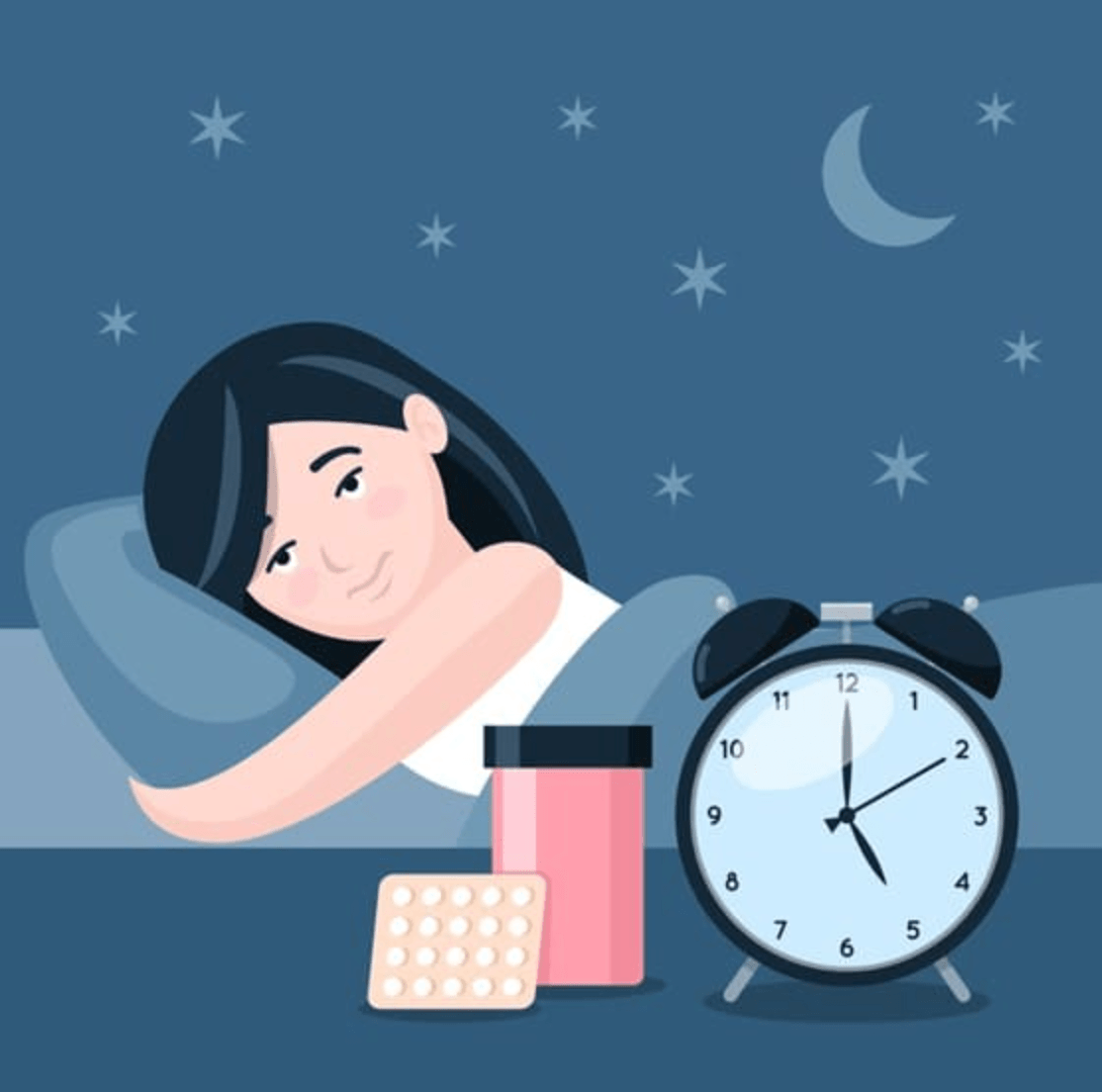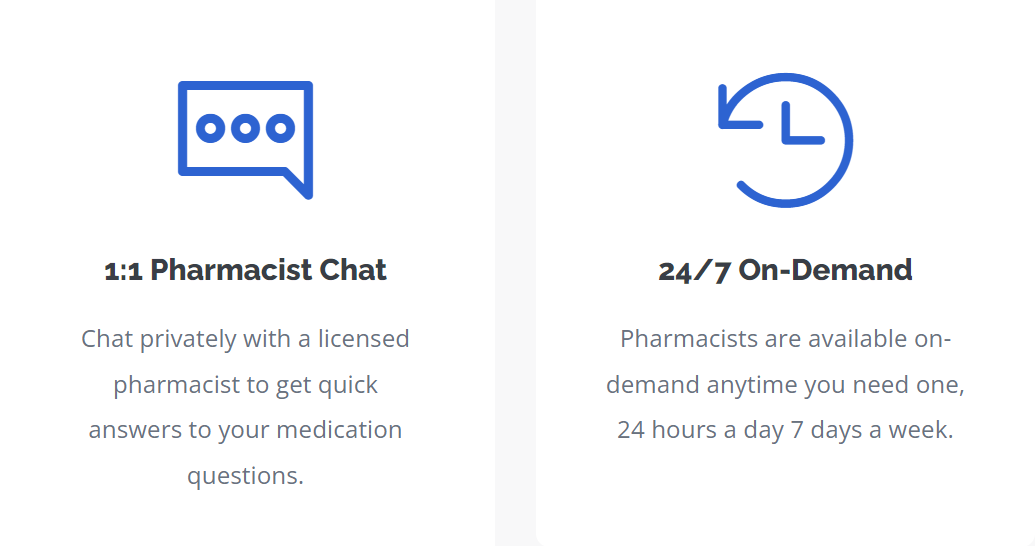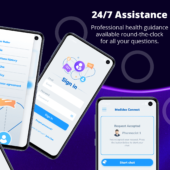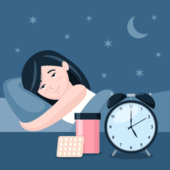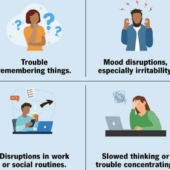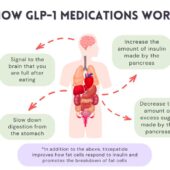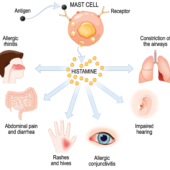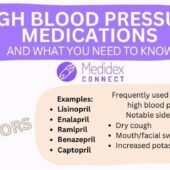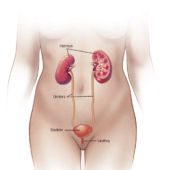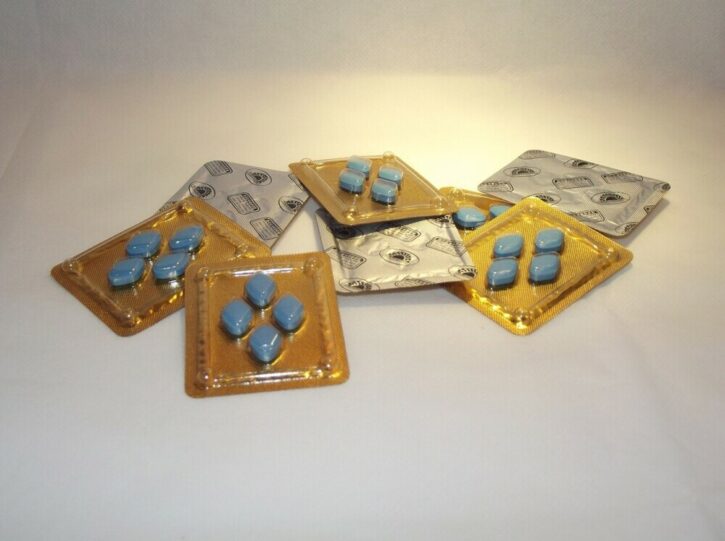What are Sleep Disorders?
Sleep disorders encompass a range of conditions that disrupt an individual’s ability to maintain healthy sleep patterns. These disorders can significantly affect overall health, daily performance, and quality of life. Recognizing and addressing these issues is essential to promote better sleep hygiene and well-being. This article will cover how to manage sleep disorders, including the different types of sleep disorders and treatments for sleep disorders.
If you have questions about sleep disorders and ways to manage them, you can always talk to a licensed pharmacist on-demand with Medidex Connect.
Types of Sleep Disorders
Insomnia
Insomnia refers to the difficulty of initiating or maintaining sleep throughout the night. This condition can be attributed to a variety of factors, including stress, anxiety, depression, the use of certain medications, the consumption of caffeine, and inadequate sleep habits. Individuals suffering from insomnia commonly experience symptoms such as fatigue, irritability, and impaired concentration.
Sleep Apnea
Sleep apnea is a sleep disorder characterized by interruptions in breathing during sleep. It primarily manifests in two distinct forms:
- Obstructive Sleep Apnea (OSA) is the more common type, occurring when the muscles in the throat relax excessively and temporarily block the airway. As a result, airflow is obstructed, leading to brief pauses in breathing that can disrupt sleep cycles and diminish oxygen levels in the blood.
- Central Sleep Apnea (CSA) a less common form that arises from a failure of the brain to communicate effectively with the muscles responsible for controlling breathing. In this case, the individual may experience episodes where they stop breathing altogether, as the brain does not send the necessary signals to initiate inhalation. Individuals suffering from sleep apnea may experience a variety of troubling symptoms, such as frequent interruptions in breathing during sleep, often accompanied by gasping or choking sounds, waking up with a dry mouth due to prolonged breathing through the mouth, loud and disruptive snoring that can disturb others’ sleep, persistent daytime sleepiness, which can lead to difficulties concentrating and increased fatigue.
Narcolepsy
Narcolepsy is a complex neurological disorder marked by sudden and uncontrollable episodes of sleep during the day. Individuals with this condition may find themselves abruptly falling asleep while engaged in daily activities, significantly impacting their quality of life. This disorder is frequently accompanied by a range of symptoms, including muscle weakness, called cataplexy, which can cause a partial or complete loss of muscle tone. Additionally, individuals may experience vivid hallucinations during the transition between wakefulness and sleep, as well as episodes of sleep paralysis.
Restless leg syndrome
Restless Leg Syndrome (RLS) is a neurological disorder characterized by an overwhelming urge to move the legs, particularly when resting or lying. This condition often leads to uncomfortable sensations, such as tingling, crawling, or aching in the legs, which typically worsen during inactivity. Symptoms can vary in intensity and may be temporarily relieved by movement, such as walking or stretching. RLS often disrupts sleep patterns, contributing to difficulty falling or staying asleep, and can significantly impact overall quality of life.
Circadian Rhythm Disorders
Circadian rhythm disorders affect individuals who work nontraditional hours. This condition can lead to challenges such as difficulty falling asleep, trouble maintaining sleep, and excessive daytime sleepiness. Fortunately, shift work sleep disorder (SWSD) can be managed through a combination of lifestyle modifications, light therapy, and medication when necessary.
Parasomnias
Parasomnias are characterized by abnormal behaviors, experiences, or movements during sleep. These incidents can manifest in various ways, including sleepwalking, night terrors, and sleep talking. Sleepwalking involves leaving the bed and performing complex activities while in a state of unconsciousness. Individuals often have little to no memory of these events upon awakening. Night terrors, or sleep terrors, are episodes of intense fear or panic that typically occur during deep non-REM sleep. During these episodes, a person may scream, exhibit physical agitation, or display signs of extreme anxiety, often waking up confused and disoriented.
Hypersomnia
Hypersomnia is a sleep disorder defined by persistent and excessive daytime sleepiness, which occurs despite the individual having received sufficient and restorative sleep during the night. People suffering from hypersomnia often find it challenging to stay awake and alert throughout the day, which can significantly impact their daily activities, work performance, and overall quality of life. This condition may be caused by various factors, including underlying medical conditions, medications, or lifestyle choices, and can lead to episodes of prolonged sleep during the day.
Manage Sleep Disorders With Treatment
Light Therapy to Manage Sleep Disorders
Light therapy has demonstrated significant potential in effectively regulating melatonin levels, which are essential for maintaining a healthy sleep-wake cycle. By utilizing specific wavelengths of light at optimal times, light therapy can help synchronize the body’s internal circadian rhythms. This helps promotes more consistent and restorative sleep patterns
Cognitive Behavioral Therapy for Insomnia (CBT-I) to Manage Sleep Disorders
CBT-I is a structured treatment plan that typically spans 6 to 8 weeks. This approach is designed to assist individuals in developing strategies to fall asleep more quickly and maintain sleep for longer durations. CBT-I is often recommended as the initial treatment option for individuals experiencing long-term insomnia and is highly effective.
Prescription Medications to Manage Sleep Disorders
Sleep aids can be classified into three primary categories: prescription medications, over-the-counter (OTC) products, and natural supplements. Each category offers distinct options to address various sleep-related concerns.
- Prescription medications typically include benzodiazepines and non-benzodiazepine sedatives, which are designed to treat specific sleep disorders and are prescribed by a healthcare professional after a thorough evaluation.
- Benzodiazepines are medications that enhance the effects of the neurotransmitter gamma-aminobutyric acid (GABA) in the central nervous system. By increasing GABA’s inhibitory action, these agents reduce neuronal excitability, resulting in calming effects and facilitating sleep onset and maintenance. Examples of benzodiazepines are Temazepam (Restoril), Triazolam (Halcion), and Estazolam (ProSom).
- Non-benzodiazepines, known as Z-drugs, enhance GABA activity in the brain but have distinct chemical structures that set them apart from traditional benzodiazepines. Examples include Zolpidem (Ambien), Zaleplon (Sonata), and eszopiclone (Lunesta). This unique structure often results in fewer side effects, such as a lower risk of dependence and withdrawal symptoms. Z-drugs typically have a shorter half-life, which helps target sleep onset while minimizing daytime sedation, making them a valuable option for managing insomnia and anxiety-related conditions.
- Over-the-counter (OTC) sleep aids often contain active ingredients like diphenhydramine or melatonin, which can assist individuals struggling with occasional insomnia or difficulty in falling asleep. These products are widely available and can be a convenient option for those seeking temporary relief from sleep disturbances.
- Natural supplements encompass a range of products such as valerian root, chamomile, lavender and magnesium, which are derived from natural sources and are often used by individuals looking for alternatives to conventional medication. Each type of sleep aid operates through different mechanisms and may suit various individuals depending on their unique sleep issues, lifestyle factors, and overall health status. Consulting with a healthcare provider is recommended to determine the most appropriate option tailored to individual needs.
When taking medications and supplements for sleep disorders, it is essential to follow the directions carefully. Many people find medication reminder alerts helpful in remembering to take doses as scheduled.
Continuous Positive Airway Pressure (CPAP) to Manage Sleep Disorders
The CPAP device is an essential tool designed to maintain airway patency (remaining open and unobstructed) during sleep by applying mild air pressure. The system comprises a mask that securely fits over either the nose or the nose and mouth, held in place by adjustable straps. A connecting tube links the mask to the device’s motor, which actively delivers airflow. This technology plays a crucial role in supporting individuals with sleep-related breathing disorders.
Manage Sleep Disorders with Sleep Hygiene Methods
- Ensure that the bedroom environment is dark, quiet, and comfortable.
- Maintain a consistent sleep schedule to promote healthy sleep patterns.
- Avoid daytime naps, even after a night of insufficient sleep, and limit any necessary naps to 30 minutes.
- Reserve the bedroom for activities specifically related to sleep to create a conducive environment.
- Position the clock face away from view to reduce anxiety associated with falling asleep.
- If one cannot sleep, it is advisable to rise and engage in a calming activity to shift focus.
- Establish a pre-bedtime ritual to signal to the body that it is time to rest.
- Incorporate relaxation techniques before sleep, such as listening to soft music, reading, or gentle stretching.
- Refrain from engaging in physical exercise immediately before bedtime.
- Avoid consuming heavy meals before sleep, and limit caffeine intake in the afternoon.
Manage Sleep Disorders – Final Thoughts
Sleep disorders can significantly impact your quality of life, affecting mental and physical health, as well as performance at work or school. If you’re having trouble sleeping, it’s important to consult a healthcare provider. Good sleep hygiene and following medical advice are essential for improving sleep and overall well-being.
If you have additional questions about managing sleep disorders, connect with a licensed pharmacist on-demand with Medidex Connect.
Disclaimer: This website does not provide medical advice. No content on this site is intended to be a substitute for professional medical advice, diagnosis, or treatment. All content on this site is for educational and informational purposes only, does not constitute medical advice, and does not establish any kind of patient-provider or client-professional relationship by your use of this website. Although we strive to strictly provide accurate and up to date general information, content available on this site is not a substitute for professional medical advice, and you should not rely solely on the information provided here. Always seek the advice of your physician or other qualified healthcare provider with any questions you may have regarding medical conditions, treatments, or medications.


